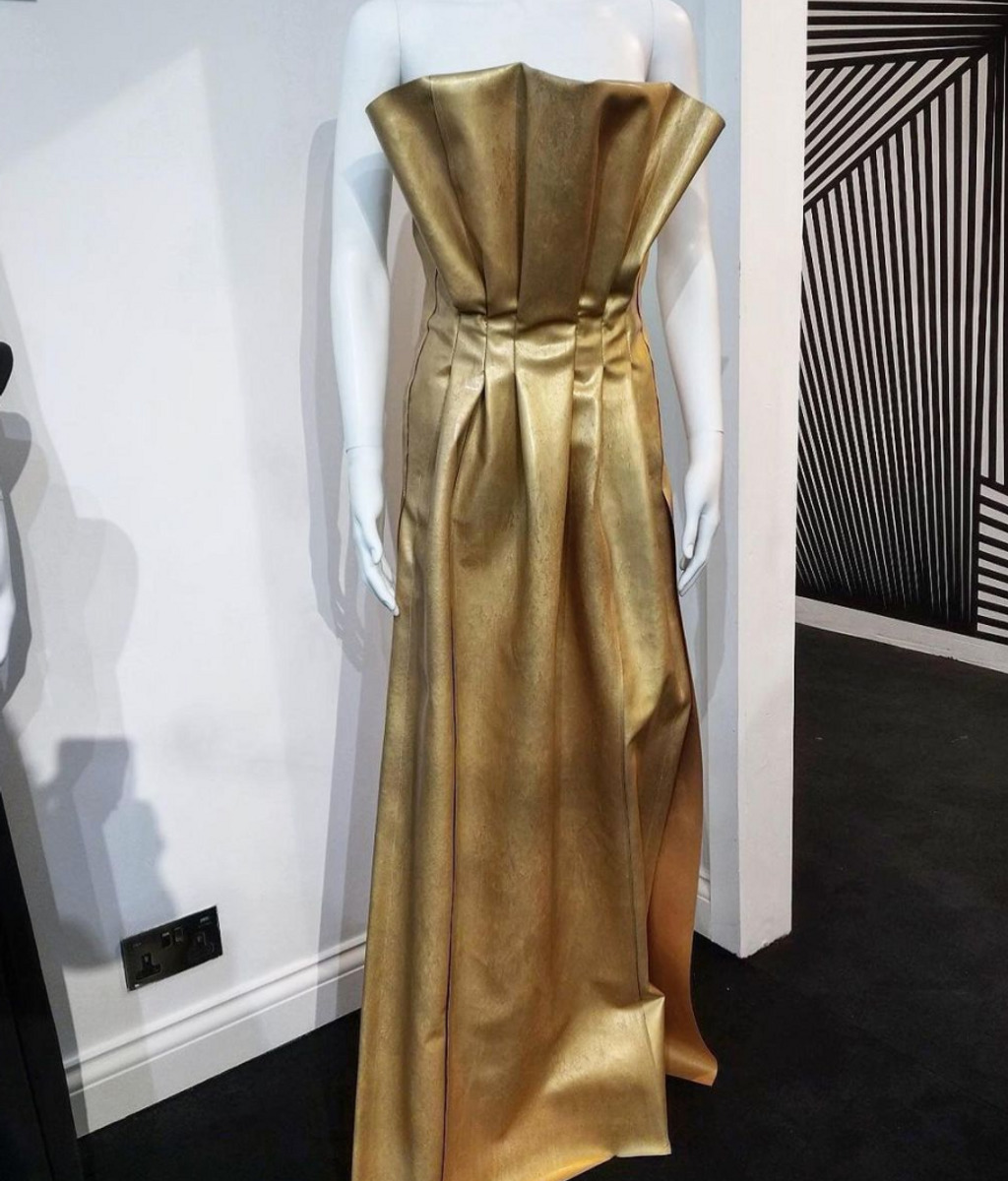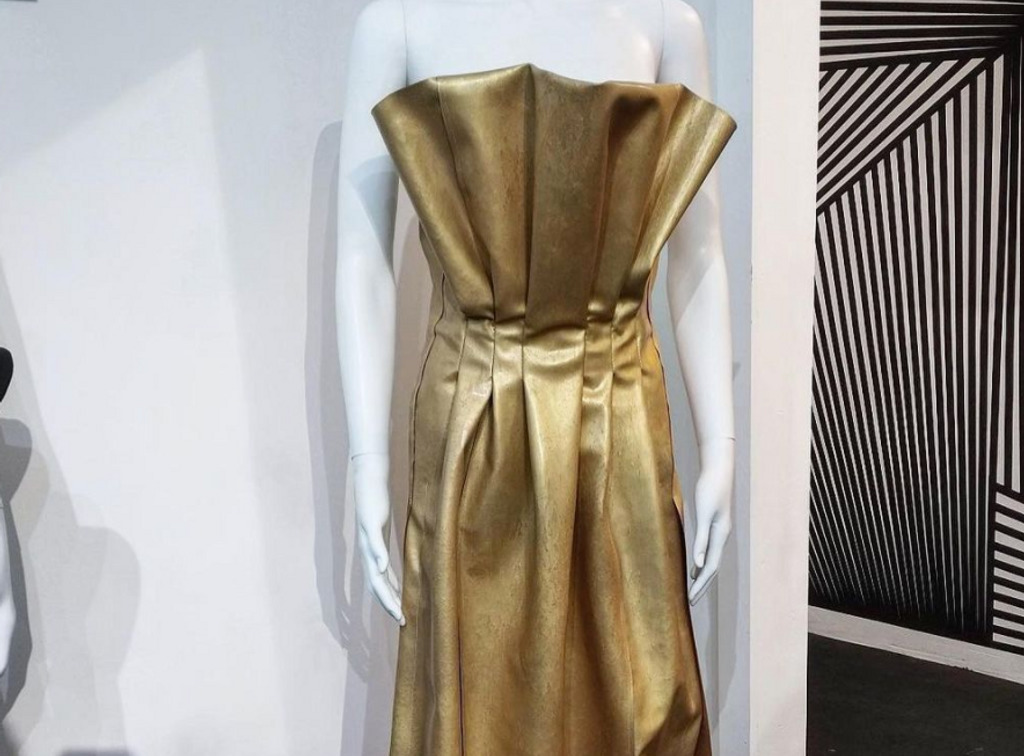4 Mins Read
Supported by Ralph Lauren, Natural Fiber Welding, a technology company commercialising sustainable materials for a circular economy, will be setting up a new facility in Illinois to develop plastic-free, plant-based leather.
Set to open on West Jefferson Avenue in downtown Peoria, Illinois, the facility will span over 10,000-square-feet and will be utilized to manufacture its plant-based leather product, called Mirum.
Last year, the Ralph Lauren Corporation invested a minor sum in Natural Fiber Welding (NFW) with the fashion giant mentioning that it planned to use NFW’s technology in an effort to create clothing from natural and sustainable materials.
Founded in 2015 by Luke Haverhals, who worked as a chemist at the United States Naval Academy, NFW highlighted that after receiving funding from the U.S. Department of Defense, Haverhals discovered how to manipulate natural fiber structures at near-atomic precision.
By making use of substances like hemp, waste cork, coconut and vegetable oil, NFW will produce a product that feels and looks like conventional leather but has zero plastic resins, glues or coatings that are otherwise used by other plant-based leather alternatives making it 100% free of petroleum-based plastics. For instance, materials like cork powder, a by-product of making corks for wine, can be fused with coconut fiber and as a result, strong leather with a light texture can be produced.
The fibrous mixtures are then compressed with a mould creating the pattern and texture of conventional leather. Fashion brands can also send patterned textiles to NFW, that can then be turned into customised, leather-like products as well as can be coloured using nontoxic mineral pigments and plant dyes, which are mixed in without water.
The foundation of the company is plants, not plastic. The product has a similar cost to plastic alternatives, but can be made from agricultural waste and is fully biodegradable. Nature makes highly complex materials and makes those materials in abundance. And if people knew how to manufacture those materials that already exist at big scales, then it would profoundly change how people manufacture
Luke Haverhals, founder and CEO of Natural Fiber Welding

According to data from the United Nations, it is estimated that the global fashion industry is responsible for 10% of global carbon emissions, 92 million tonnes of annual landfill waste, and 20% of water wastage.
Explaining why Mirum is an efficient alternative to regular leather, Haverhals said: “The foundation of the company is plants, not plastic. The product has a similar cost to plastic alternatives, but can be made from agricultural waste and is fully biodegradable. Nature makes highly complex materials and makes those materials in abundance. And if people knew how to manufacture those materials that already exist at big scales, then it would profoundly change how people manufacture.”
Presently, the product is utilized in fashion as well as automotive industries, including in a new plant-based bag line from Bellroy. It can also be used in shoes and furniture.
NFW also produces a product titled Clarus that converts recycled cotton into longer fibers creating quality cotton yarns allowing designers to reuse cotton to create upcycled material that claims to last longer than synthetic fabrics at the same time maintaining the original feel of cotton.
Highlighting the importance of a circular economy and why the material that eventually goes into the bin should be biodegradable, Haverhals added, “There are lots of people who say we need to go to a circular system. And I think to myself, well, life is the original circular material. What humanity has needed, in my opinion, is a way to manufacture with all those abundant materials in ways that let people have more things with less cost of resources. Then those things are themselves just naturally circular so that the system can regenerate.”
The company added that by the end of 2021, the facility will create 100 new jobs and at one point, aims to reach a stage to manufacture tens of millions of square feet of Mirum annually.
The global synthetic leather market, which is presently valued at US$25 billion, is projected to reach US$45 billion by 2025. According to another report published by the Circular Fashion Summit, it is predicted that the circular fashion industry could grow from US$3 trillion to US$5 trillion, with the help of digital technology platforms.
Several brands have come forward to make fashion sustainable for instance, recently the Apparel Impact Institute announced a project in partnership with Stella McCartney, Burberry, and French luxury fashion group Kering in an effort to improve the environmental footprint of Italy’s luxury fashion supply chain.
Also, footwear brands are doing their bit for the environment like Nike recently released a brand created with animal-free leather and Adidas too has committed to growing its plant-based range along with making 60% of all its products using recycled sources.
Lead image: Mirum featured at the London Fashion Week courtesy of NWS




